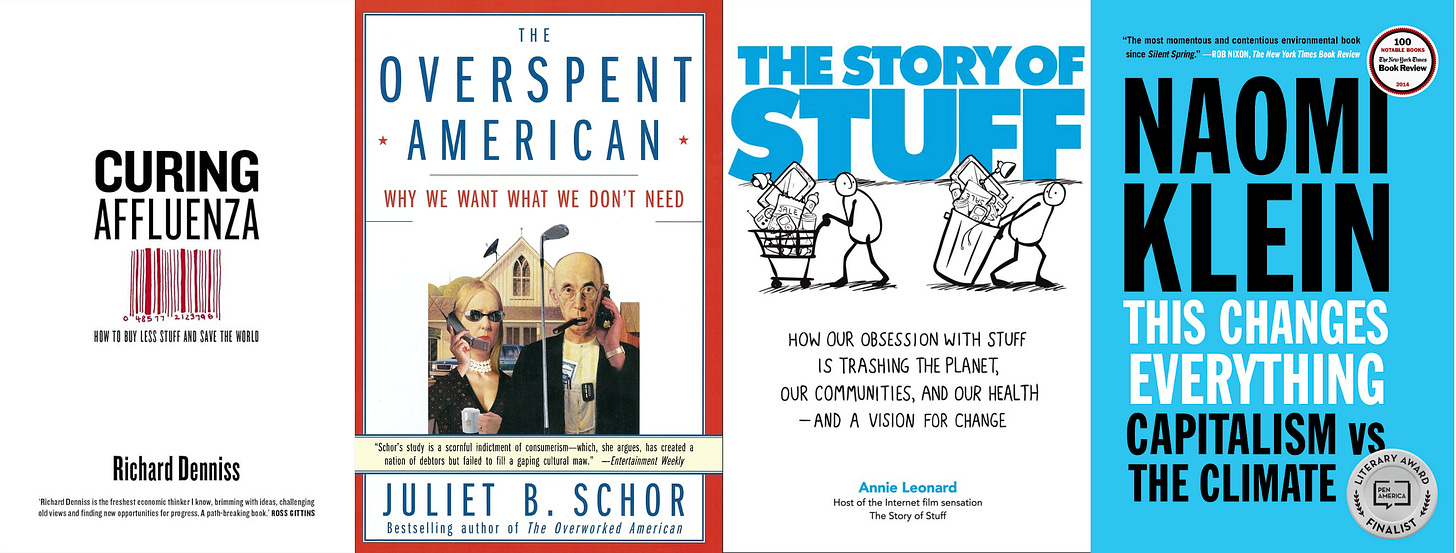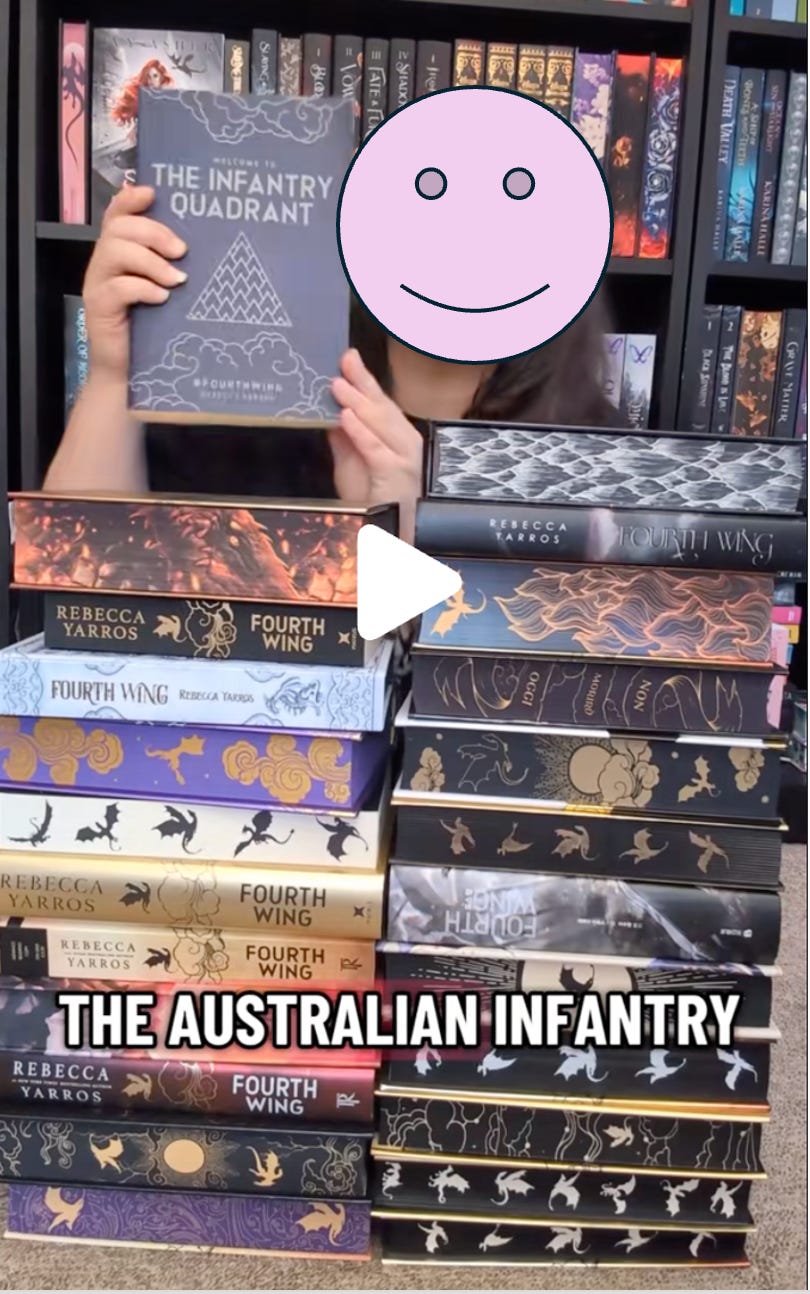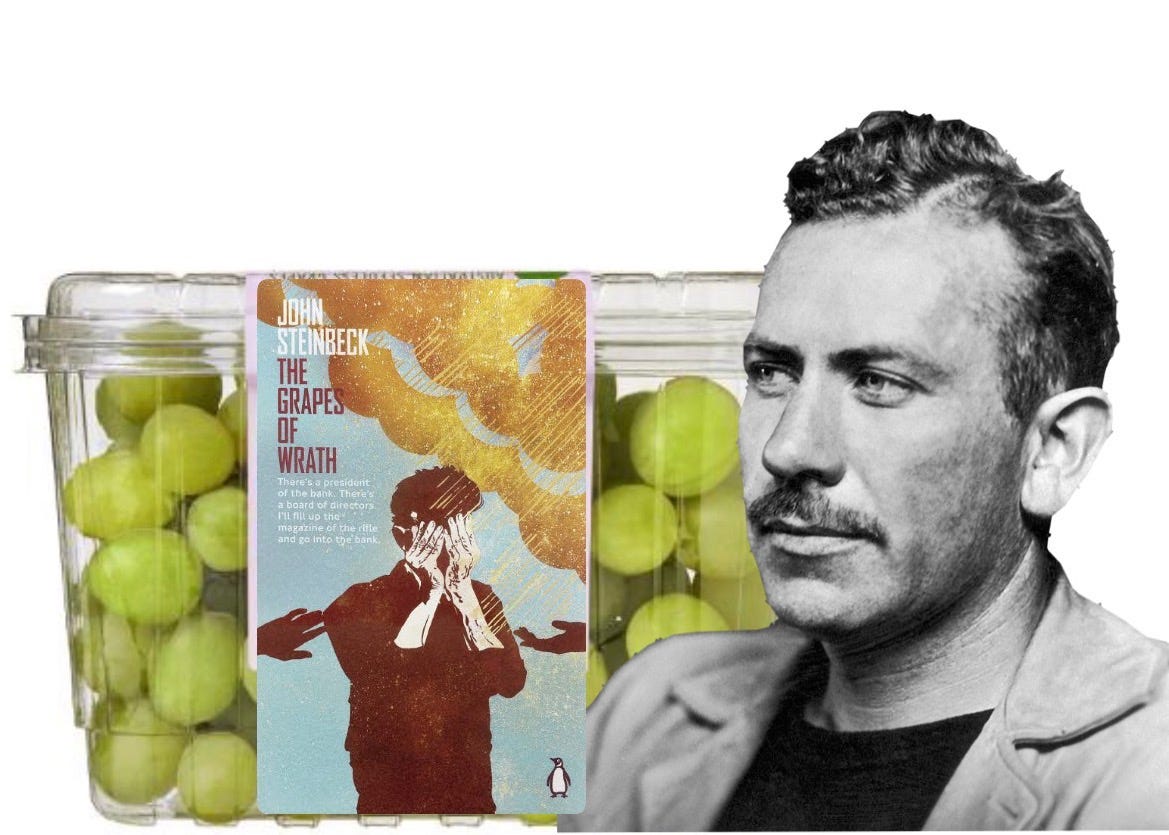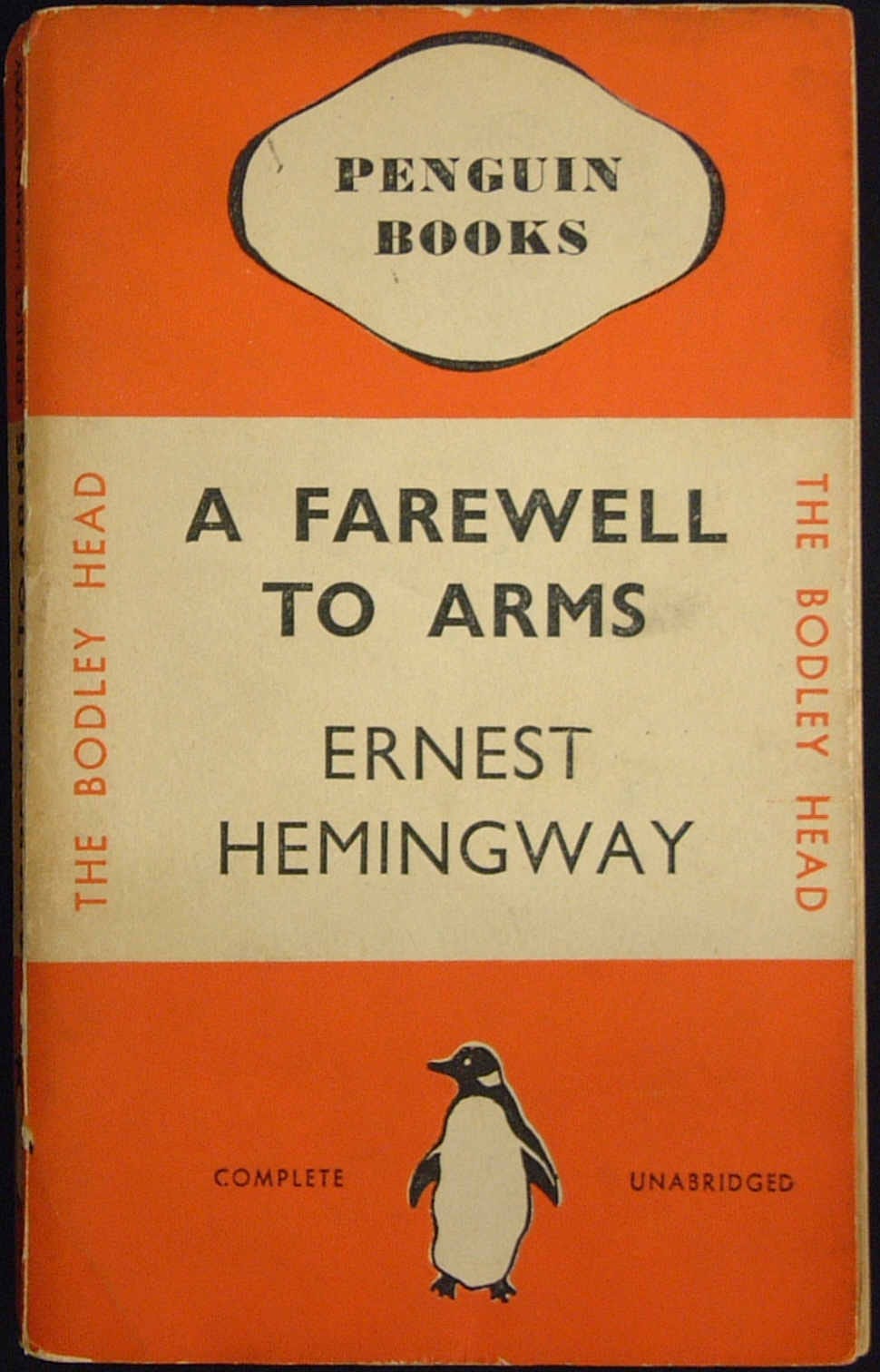Overconsumption and Consumerism in Books
Are exclusive and special-editions at high-end price-points making it harder to be an emerging writer, and ethical reader?
There’s been a bit of chatter recently, about the overconsumption of books and how it’s starting to feel like book-publishing is resembling fast fashion for certain patterns. I believe these talking-points were especially under the microscope because of this Bloomberg article;
TikTok Is Turning the Publishing World Into Fast Fashion - Before you grab a copy of Rebecca Yarros’ Iron Flame, recognize that its success is being driven by a problematic hype machine.
Not everyone agreed with the premise or argument as laid out by Jessica Karl, and I think I saw especially great discussion about the general idea from YouTube essayists;
is tiktok turning the publishing world into fast fashion? by mynameismarines
BookTok and overconsumption by According to Alina
For what it’s worth, one of my favourite YouTubers is Abby Cox (who is also an author) and I think her deep-dive into this *slaps* and is the most robust - she acknowledges the long-bows being drawn, the history behind books as mass products, and then just logics it out;
I agree with Cox that fast-fashion is damaging precisely because of its negative environmental impact (the industry is the second-biggest consumer of water and is responsible for about 10% of global carbon emissions, according to Earth.org) - and the same can’t be said of book publishing, even if The Big 5 publishers still have a long way to go on their environmental responsibilities (Impact of Book Publishing on Environment).
Still; this topic has continued to be a go-to for books commentary lately;
What Does Overconsumption of Books Look Like? Wade into some hot water with me and ask yourself: what does overconsumption of books look like, and how can we avoid it?
Booktok: A platform of overconsumption that has amassed more power than a religion (lol, this one is so hysterical)
But I do think there is a discussion to be had, that is separate from the quality and types of books being published and hyped, that falsely-equates to “fast-fashion” by likening them to a cheap product of lesser worth. I do believe the real issue here is consumerism.
Books and Overconsumption
We all consume too much stuff, in every facet of our lives and it is destroying the planet. For more;
Curing Affluenza by Richard Denniss
The Overspent American Why We Want What We Don’t Need By Juliet B. Schor
The Story of Stuff: How Our Obsession with Stuff is Trashing the Planet, Our Communities, and Our Health - and a Vision for Change by Annie Leonard
This Changes Everything Capitalism vs. the Climate by Naomi Klein
Lately I’ve been observing the books community on the latest hyped social media platform that has so taken publishing by storm - The Power Of BookTok: Why TikTok’s Book Community Is Driving A New Era In Publishing - and I do see issues of consumerism, that I think is also growing at a more rapid pace.
For example; owning 24-copies of a single book.
I don’t want to shame this creator (hence, anonymity), because honestly you could swing a Grumpy Cat on any social media platform and hit someone from the books community, showing off their multiple-copies-purchased of a single book that they love (heck, I do this too! I own 4 copies of Frankenstein and 3 of Melina Marchetta’s Looking for Alibrandi!) but certainly I’ve seen this to alarming levels lately … for instance; owning 24 copies of Rebecca Yarros’ Fourth Wing; special editions in both English-language and various translations. I believe she also purchased same-editions that were re-released with a bonus chapter? Twenty-four; 24 copies of the same novel. Some she can’t even read, but just … owns.
I find this particularly bewildering, considering Fourth Wing only came out in April 2023. One copy I own of Looking for Alibrandi is a special hardcover 30th Anniversary Edition, because it’s been around that long and I found it quite sentimental to own the milestone (the other is my original battered copy that I replaced with a new not-falling-apart book). And of Frankenstein; I own both an 1818 and 1831 edition - to compare the text - but I also totally buy versions of Shelley’s book with a cover I love too. But to own 24 versions of a novel that came out only 3-years ago is … baffling, to me. But it’s not at all uncommon on TikTok/BookTok.
Being seen to be reading/consuming
And I do understand - we’re operating on visual-led platforms, where being seen to be reading (and simultaneously aesthetically-pleasing) suddenly became a big part of books culture. This all started with Instagram;
How the #bookstagram movement has changed the way fiction is marketed, reviewed and read. Book blogging has always existed on the internet, but on Instagram it collides with the influencer economy, writes Zamira Rahim
And such is the pressure in bookish spaces to keep up with trends, latest releases, being seen to be reading the right/hyped/hot book right now, that this mentality has no doubt partly led to Silicon Valley thinking they’re “helping” by streamlining the most time-consuming part of reading, the … um - reading, part.
“Congrats on making Fahrenheit 451 a reality!”: People are bragging about “reading” hundreds of books—but it’s just AI summaries. It’s SparkNotes, but worse
Owning, not borrowing
It amazes me that in this increasingly fast-paced, visual-led world of Books Consumerism dominated by the algorithm, people aren’t pushing libraries more … I mean; we’re also in a cost-of-living crisis and these 24-special-edition-hardcovers-of-the-same-book and endless subscription boxes must be costing a *fortune*.
Libraries could really use the boost right now too, especially in America (‘Civil rights fight of our time’: new film explores the battle over US libraries) … but, no. Because another component of this consumption and consumerism in books is brand-overlap and partnership, and libraries are - quite possibly - one of the last places on this planet that are not trying to sell you a damn thing.
And capitalism hates that.
Books and consumerism
Increasingly, publishers and authors are leaning into branded opportunities, while other consumerist arenas are leaning into crossovers with literary realms;
Book girl summer: Why brands are leaning into the literary world - Miu Miu’s ‘Summer Reads’ pop-ups are the latest in a line of fashion-literature tie-ups, as houses embrace the written word as a means for cultivating an intellectual brand identity.
Vivienne Westwood’s Exclusive Nana Collection Draws Mixed Reactions
And then there’s more overt stuff, like a Colleen Hoover nail polish collab (exclusive to Target!)
I also mark these as separate to, say, The Consumerist Dystopia of Harry Potter - because all of those books have entered the Hollywood machine and a different level of branded crossover as a result.
All of this makes me think of what could have been; historic literary consumerism collabs across time. Would John Steinbeck have been into a genetically-engineered grape, made to taste like wrath (with overtones of exploitation of migrant workers) and sold exclusively at Erewhon? We can just never know.
The loss of the ‘mass market paperback’
You would think that in this era of book-hype and how fast publishing seems to be moving and readers consuming - especially in the adult fiction space - that the trusted ‘mass market paperback’ (generally sized 6.75×4.25 inches or 7.75×4.25 inches) would be booming.
Alas, the MMP has become one of the victims of seemingly being the-wrong-kind-of-bookish-consumerism;
We All Miss Mass Market Paperbacks - It’s partly nostalgia, but there really is something special about those books...
An Elegy for the Duke: Are Reports of the Demise of Historical Romance Exaggerated?
Publishers Weekly reported in February that Readerlink, the largest distributor of books to mass merchandisers, is scheduled to stop distributing mass market paperbacks by the end of 2025. Mass market paperbacks — the smaller paperbacks you used to find at your local pharmacy and grocery store — have long been where midlist romance authors sell their books and top authors get a boost in sales. They make it possible for new readers to take a chance on unfamiliar authors at a low cost, especially if they prefer to read a printed book.
I particularly feel this loss, and especially what it means for a decline in new Historical Romance publications, and my credentials in this space are;
(lol, this is not even a quarter of all the his-rom books I own, but they’re double-stacked on a bottom shelf opposite a set of drawers and I can’t get a good pic of just how many I own)
The loss of the mass market paperback will have real repercussions for new and emerging authors - especially in genre spaces like aforementioned Historical Romance, but also Sci-Fi, Fantasy and Crime/Mystery - it’ll be harder than ever to emerge in these realms, or have modicum success as a mid-list author and break into the market successfully. Romance in particular has such voracious readers that the mass market paperback really filled a space of letting these readers test out new authors and sub-genres, without breaking the bank or taking up too much shelf-space on likely already bulging bookshelves. It was a low-cost, with potential of high-reward for the consumer-reader.
And part of MMPs loss really is down to giant retail corporations wanting to make more profit on larger and more expensive formats;
As trade paperbacks became more and more popular, distribution of mass market paperbacks became more and more challenging. “Target, for example, figured out pretty quickly that we can make more money on a $17 trade paperback than a $7.99 mass market. Target sells no more mass [market]. They stopped that years ago,” MacLean says. Walmart is following suit.
I wish this new era of bookish consumerism would lead to new and interesting works getting published, and more authors being given a shot in a landscape that is growing - releasing in affordable formats that encourages readers to take a chance on a new author or a different sub-genre space … This need for accessibility and affordability for more people, once led to the creation of one of publishing’s most recognisable success stories in the 1930s;
The Lane brothers needed a lifeline. In the 1930s, a typical, new hardcover volume cost seven shillings and sixpence, a price that made them an unaffordable luxury for many readers. The brothers decided to launch a new venture from within The Bodley Head: a series of paperbacks that would sell at the remarkably low price of sixpence.
These days however, it feels like we’re going backwards on making books more accessible and affordable and for more people.
I’m alarmed at how this growth is resulting in endless special-editions of the same book by the usual authors. And it truly sucks that publishers are not taking chances on genre-writers anymore, who could have once grown an audience in the mass-market paperback space over time and with investment in their career longevity.
It’s a good reminder that overconsumption and capitalism aren’t here to grow and expand community - they will only centralise wealth and limit new and diverse voices.
So; put down that 25th special edition hardcover of Fourth Wing that you were going to import from Sweden, and can’t read anyway. Log off and step into an independent bricks-and-mortar bookstore and browse the shelves for something outside of your algorithm.










An interesting perspective! I had a recent insight into this at YALC in London, where people dragged empty book crates through the hall, collecting special editions of books they most likely already own. I loved the hell out of it; so much joy and excitement about books. A community bonded by books. People talking about books, excited by their purchases, but also by the fellow book lover they met in the queue who was wearing the same badge as them. I definitely have capitalism and over-consumerism on hard watch, but when it comes to books, anything that gives people book frenzy makes me happy. I also wonder that the current decline of MMP might be a dip, and like so many stages of the capitalist cycle, will have a resurgence depending on some trend or other. I stay hopeful.
I feel like the other thing feeding into this is the focus on big or popular authors, or celebrity authors. I’m not one who reads something because it’s popular, or because ‘everyone else’ does (tried that and now I hate it). It’s probably why the genre authors or mid list authors don’t get the attention they should. I have found that there are some people who get very upset if you don’t want to read the popular authors because you surely must as a reader or if you like the genre they write in!